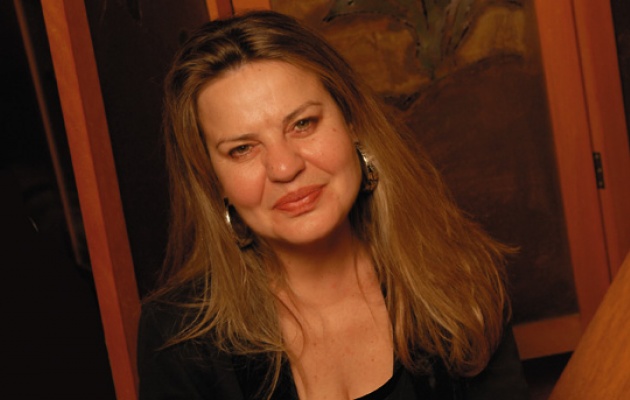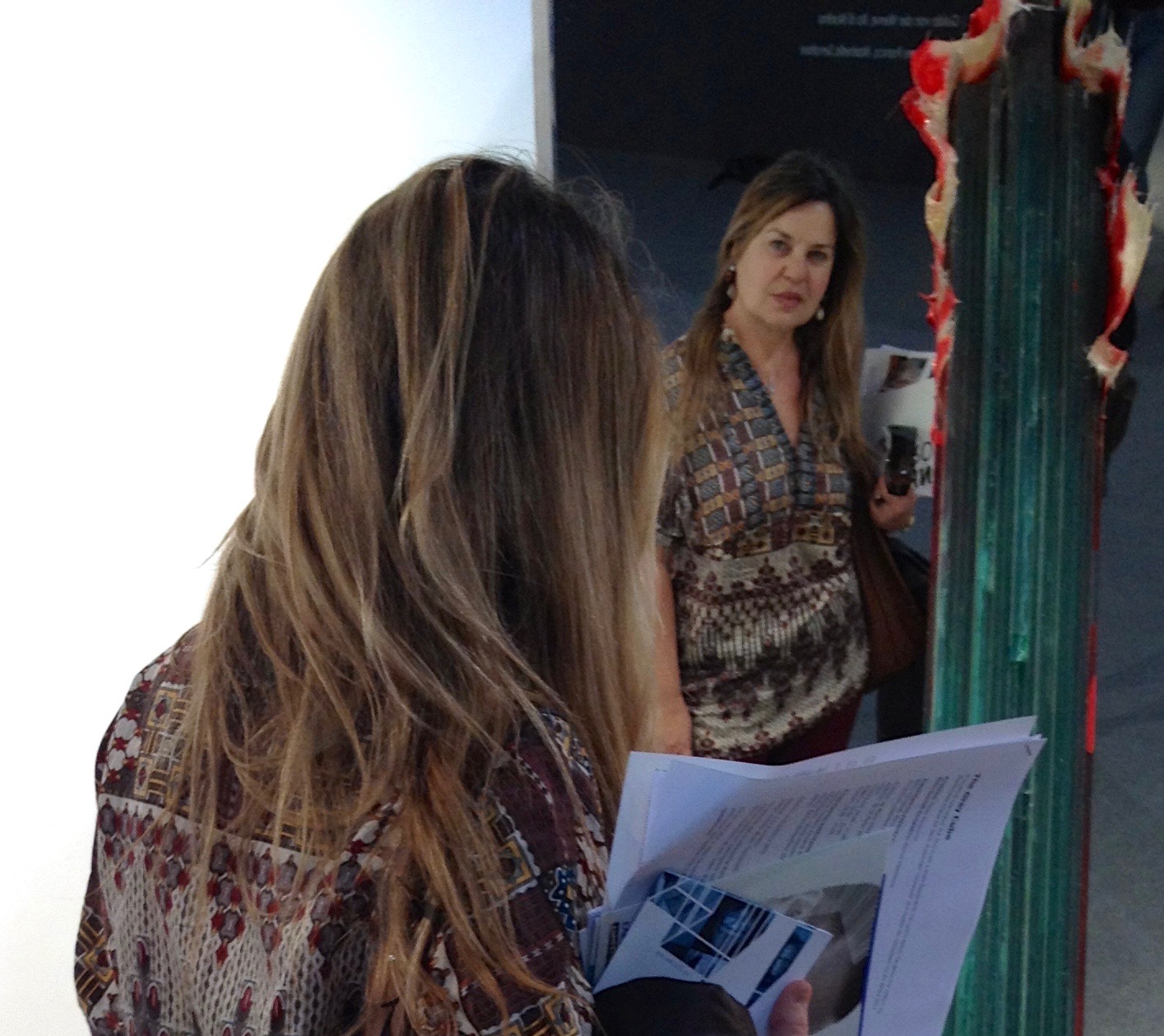by Dimitris Karathanos
Q: Τhe story of White Revenge starts on December 2008 in Athens which is choked by tear gas – Unavoidably we make some conclusions that lead to the theme of crisis in Greece. Do you think that your book, in spite of all the other themes, is shedding some light to the boiling talk of the day?
I didn’t mean to write a book about the crisis, but by placing my characters in the “present”, they were inevitably exposed to the politics of their time and History, they experience deeply the end of delusions, the “madness and despair” that was spread above our city and our lives. A big part of the plot is set into the constantly changing arena of Athens, after the Olympics, so the characters adopt the pathology of the place they live in. White Revenge is a novel which is not aiming to give advice or offer a survival guide in difficult times, but often, despite my aim, it meets with the events in a bitter, almost prophetic way.
Q:At the same time it is a novel with suspense, even if the “whodunit” is missing: there is a mystery, a number of puzzles that need to be decoded, and a number of murders. How hard was it for you to cope with such a maze of writing material and information?
Definitely it wasn’t an easy project. It demanded time and a lot of rewriting, reviewing and improvisation. Some ideas were left behind on the way, new ideas were adopted, some characters had to be altered and some others had to take over the action. During its construction White Revenge was like a building site, a continual changing “space”, where I had to be excessively inventive in order to combine inconsistent elements, worn motifs and old clichés with fresh ideas, till the book took its final form.
Q:Why do you twist from first person narrative to the third? There are many changes in the voice, like the hero, for example, who adopts different personas and tries different transformations. Didn’ t you worry about the effort that your readers will have to make?
Yes, I did, but I took the risk. I think that especially now, we need something more than a soft, easily read story, “easiness” has already expired, having left a bitter taste. Our exposition to the new, the quest of a new form (for ourselves and the world), it could possibly make us more inventive, move us ahead to a new position and that is what we mostly need today.
Q:There are soundtracks in the book – “It’s raining men”, “Mad about the boy”, lines and scenes with Boghart, Mitcham and Bacole. What was it that you wanted to underline with all these references?
The book, is also an attempt to embrace pop culture and clichés. We are all made of clichés, the sum of the songs we recall and the films we love. The task of the writer and of any creative person is not to abolish them but to give them a place, to incorporate them into his/her own plan. Cliches also contain a part of truth, a common belief. If you are just repeating them you are a parrot, but if you manage to incorporate them into your own plan you are being creative, giving them a second life. I’ m not afraid of clichés in expression but I do dread cliché people.
Q:You write novels, short stories, poems and novellas since 1992. You translate and write reviews at the same time. To what extend do this readings influence your own writing, either positively or negatively.
It’s been a precious and catalytic experience. Translating and book reviewing has helped me to be in touch with a number of narrative ways, experimentations, great writers, but, above all has helped me to find new ways of solving problems. I think of it as a kind of osmosis with the texts of other writers. I don’t think that translating has weaken my own expression, on the contrary, I have been trained to spot what needs to be corrected or altered so that the harmony and balance of the sentence will be maintained.
Q: White Revenge is not set only in Athens, a part of the novel unfolds in London and South of France, the book is in a way a long, grave comment on Athens. So, what is the city that will be traced by the reader of White Revenge like?
It is like the last days of Pompei, the downfall of the Greek dream, the fake luxuries and the flaccidness. The city becomes a mirror of our personal landscape. Some of the characters find a way to take the necessary distance, to break free and find a shelter in nature, an island or a quiet spot somewhere near the sea -a place of hope and regeneration.


Leave A Comment